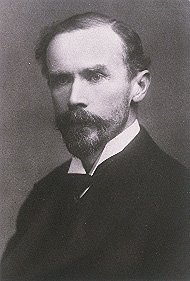Tom Nefyn Williams: A Warning from History 7: The Relucant Battle Line
 As he read Tom Nefyn's personal account of his beliefs, Owen Prys despaired. But he had a job to do. After compiling his report, listing the heresies contained in Y Ffordd yr Edrychaf ar Bethau, he presented it to the Treherbert Association (meeting) of the Presbyterian Church of Wales.
As he read Tom Nefyn's personal account of his beliefs, Owen Prys despaired. But he had a job to do. After compiling his report, listing the heresies contained in Y Ffordd yr Edrychaf ar Bethau, he presented it to the Treherbert Association (meeting) of the Presbyterian Church of Wales.The report concluded that Tom Nefyn's beliefs were: 'fundamentally opposed to the standards of our Connexion and to the historical faith of the Christian Church.' Modernists and liberals across the denominations had protested that it was 'persecution' to expect a minister to abide by the standards of the Presbyterian Church of Wales. Sir John Herbert Lewis (pictured), former MP, Government Minister, and prominent Calvinistic Methodist layman, however, had assured Prys that the majority of informed members of the Presbyterian Church were with the Connexion's authorities 'the Corff'. Owen Prys was very grateful, declaring that:
'I never undertook a more difficult task. On the one hand I have a thorough
dislike of anything like a heresy-hunt, and along with that I have a very kindly
feeling towards Tom and expected much from him. But unfortunately he put the
sasiwn [Association] in a corner by insisting that he should be judged by his
declaration, which is far more extreme than he realises, I feel sure. I have no
sympathy with fundamentalism, but this mixture of Unitarianism, Pantheism and
rationalism would deprive us of a Gospel altogether.'
Tom Nefyn was given a year in which to mend his ways or resign from his charge. By the time of the Nantgaredig Association ofAugust 1929 (Morgan's date, Robert Pope gives it as 1928), it had become clear, however, that Tom Nefyn had no intention of doing either. Although Owen Prys had not desired it, a battle for the Gospel was about to be fought. But would the trumpet give a certain sound?
Labels: Tom Nefyn Williams

0 Comments:
Post a Comment
<< Home